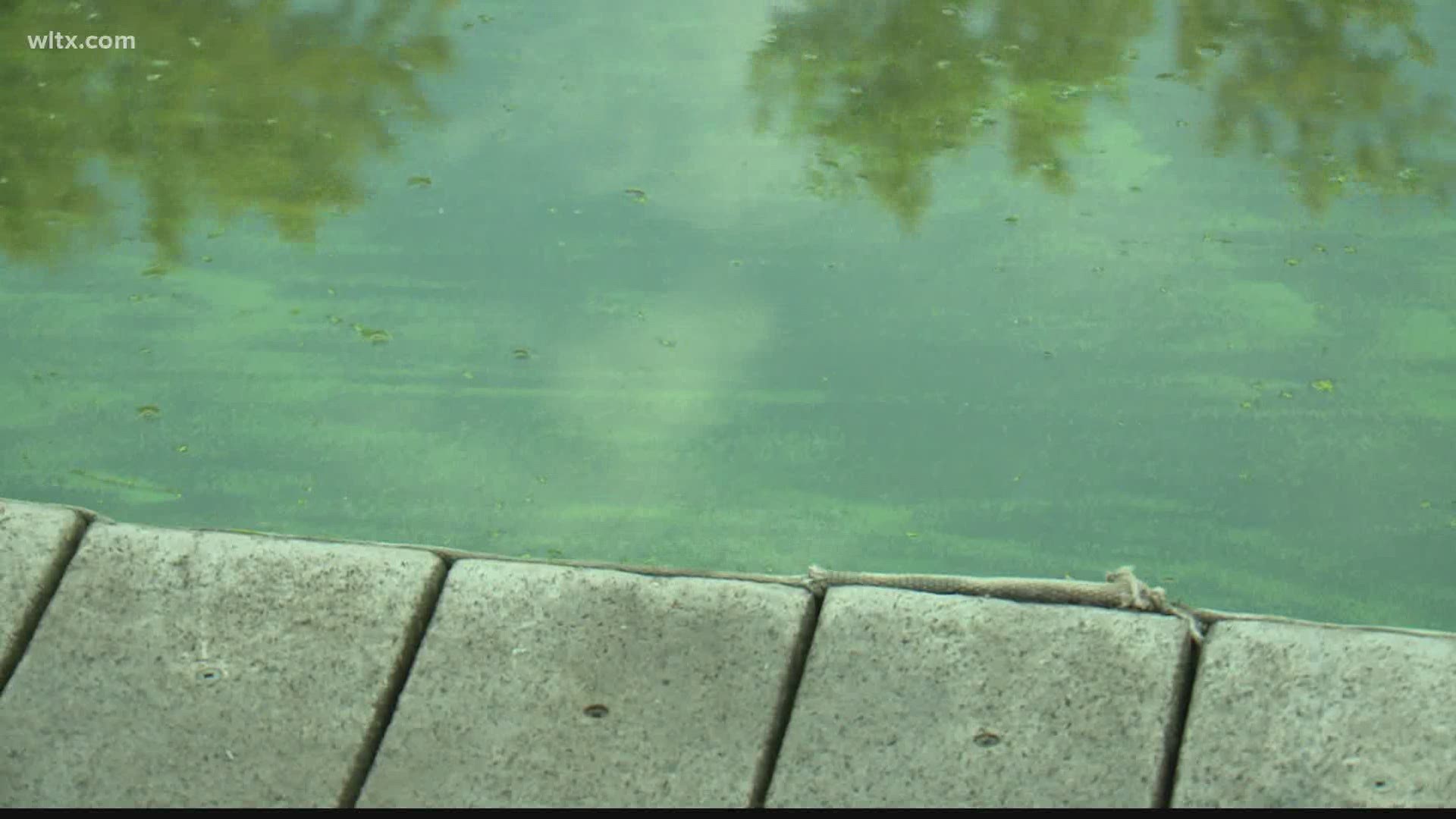COLUMBIA, S.C. — State health officials are warning the public to beware of algae blooms as they head into South Carolina's rivers and lakes over the July 4 weekend.
The South Carolina Department of Health and Environmental Control (DHEC) reports that it is monitoring blooms on Lake Whelchel in Cherokee County and Lake Wateree in Kershaw, Fairfield, and Lancaster counties.
The agency added that conditions are right for the blooms to form - and some can be unhealthy for people and animals alike.
“Harmful algal blooms are more likely to occur in the summer months when temperatures are warmest,” said Bryan Rabon, manager of DHEC’s Aquatic Science program with the Bureau of Water. “You can’t tell if an algal bloom is harmful just by looking at it, and some blooms can’t be seen because they stay at the bottom of a water body until they’re disturbed."
He added that the best practice is to stay away from a body of water - and keep pets away from it - if there's evidence of such a bloom.
In short, algal blooms are caused by tiny plant-like organisms - algae and cyanobacteria - when they overgrow in rivers, lakes, and oceans. Signs of these can include foam, scum, or thick layers of algae on the surface of the water. They may also smell bad. Other signs of a harmful bloom include dead fish.
As for the blooms currently being watched, the one in Lake Whelchel has exceeded the state's water quality standards for microcystins - a type of toxic cyanobacteria. The Gaffney Board of Public Works has issued a water quality advisement and DHEC is working with local authorities as they monitor the situation.
The bloom in Lake Wateree is the result of Lyngbya wollei. DHEC reports that while the bloom hasn't exceeded toxin limits set by the state, it is known to produce them. It appears as a mat-like material on the bottom of the lake and can float to the surface. It's also thickest in shallow coves.
Swimmers and boaters who come in contact with an algal bloom are urged to rinse off with tap water and, for pets, try to keep them from licking themselves. And if an illness arises, people should seek medical attention - or bring pets to a veterinarian.
You can monitor statewide water sampling stations on the S.C. Watershed Atlas.

